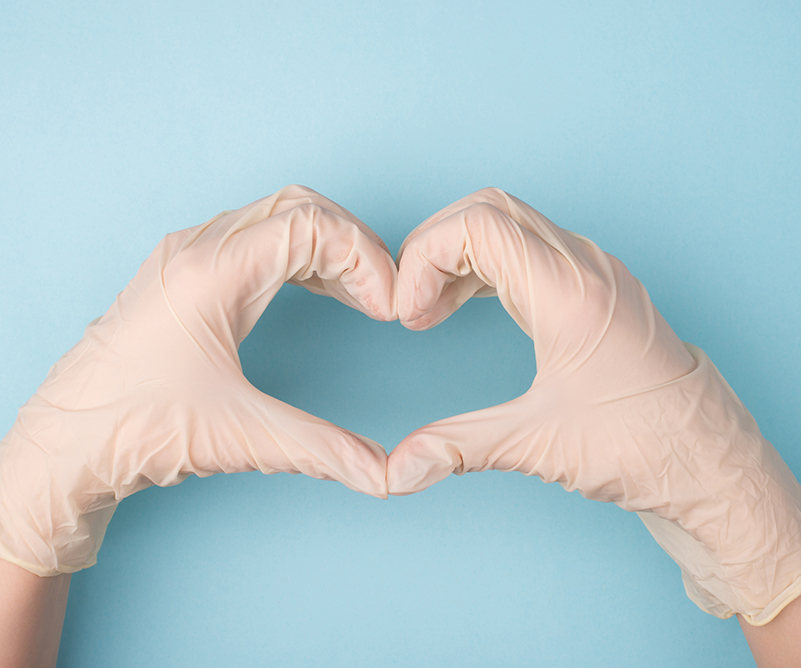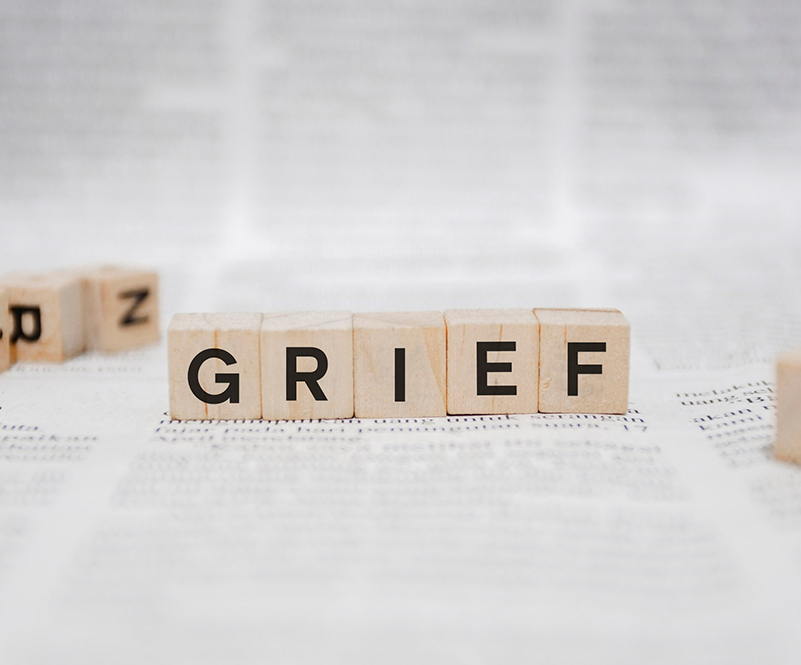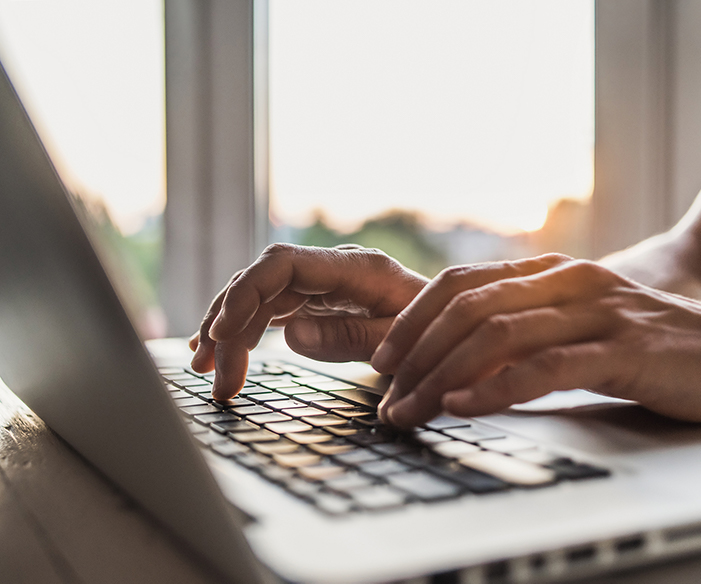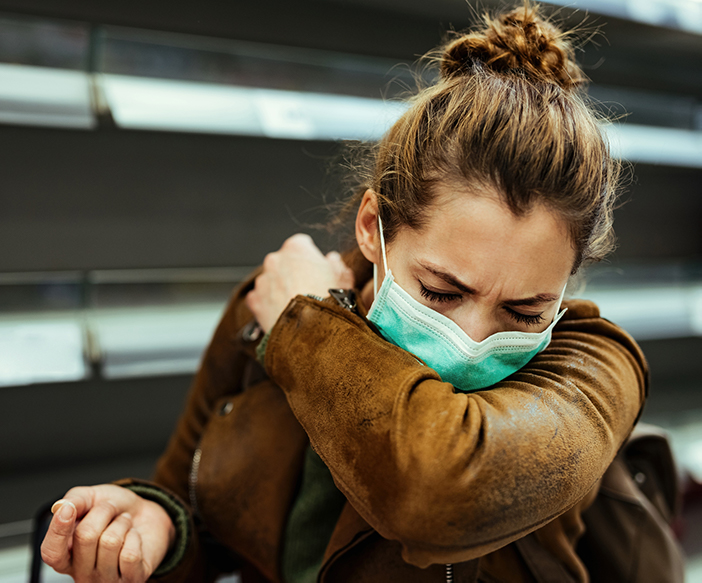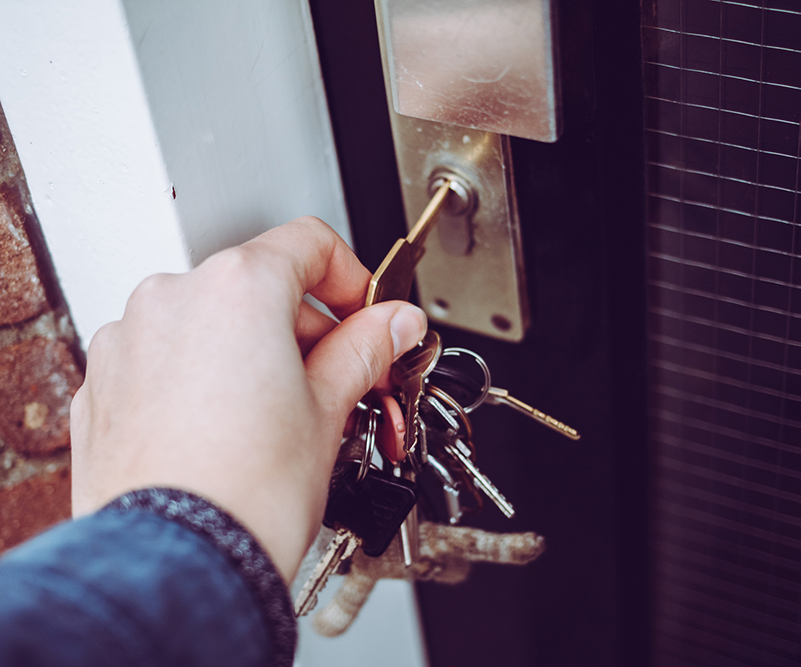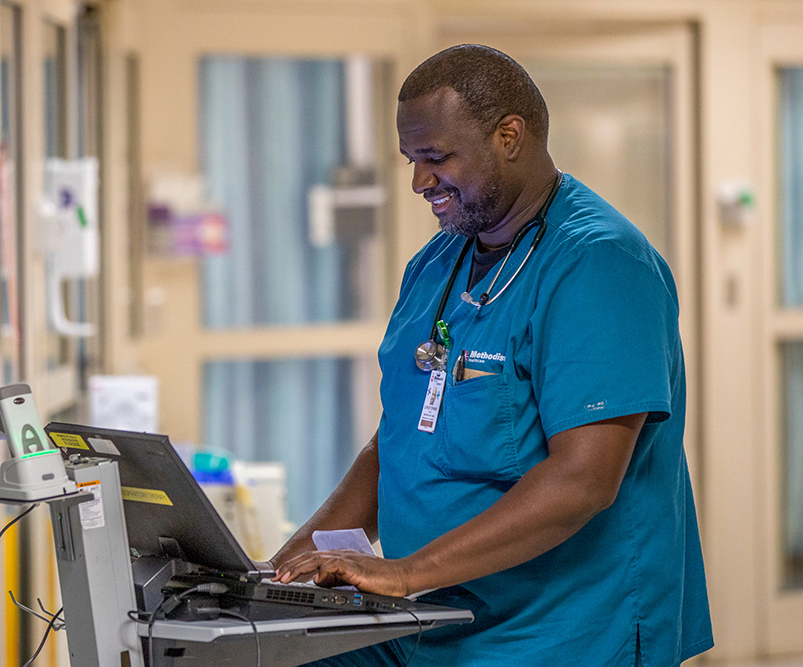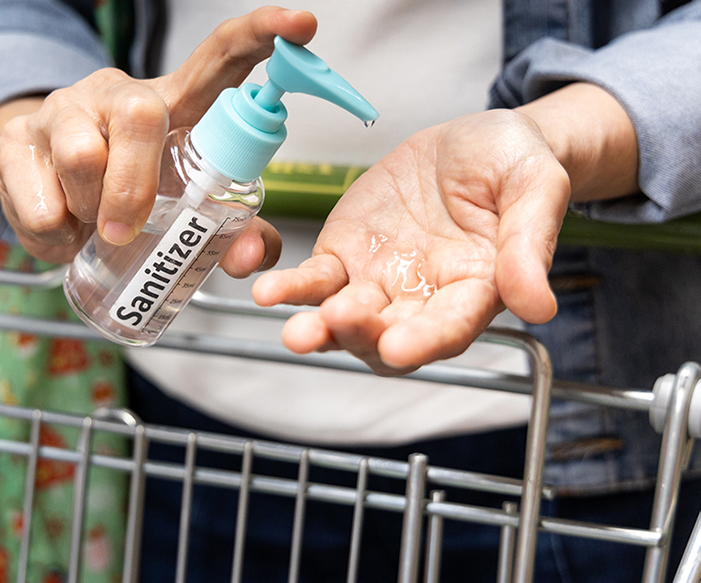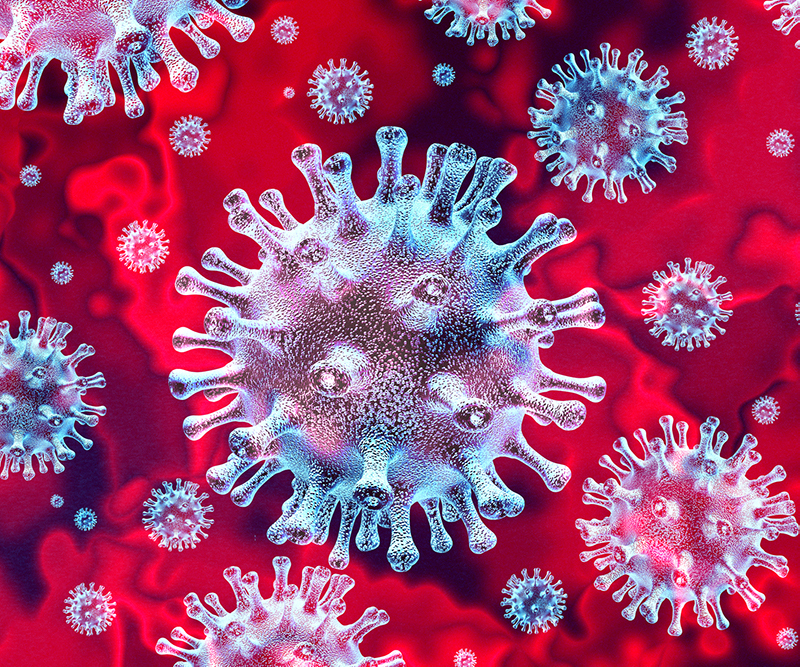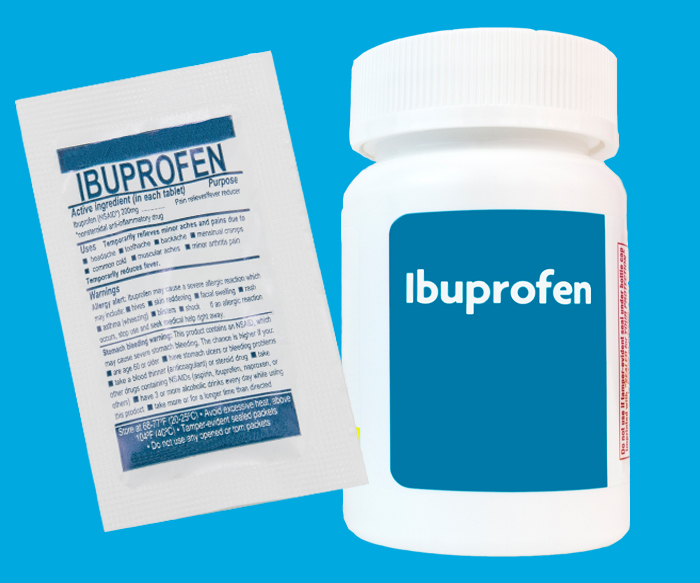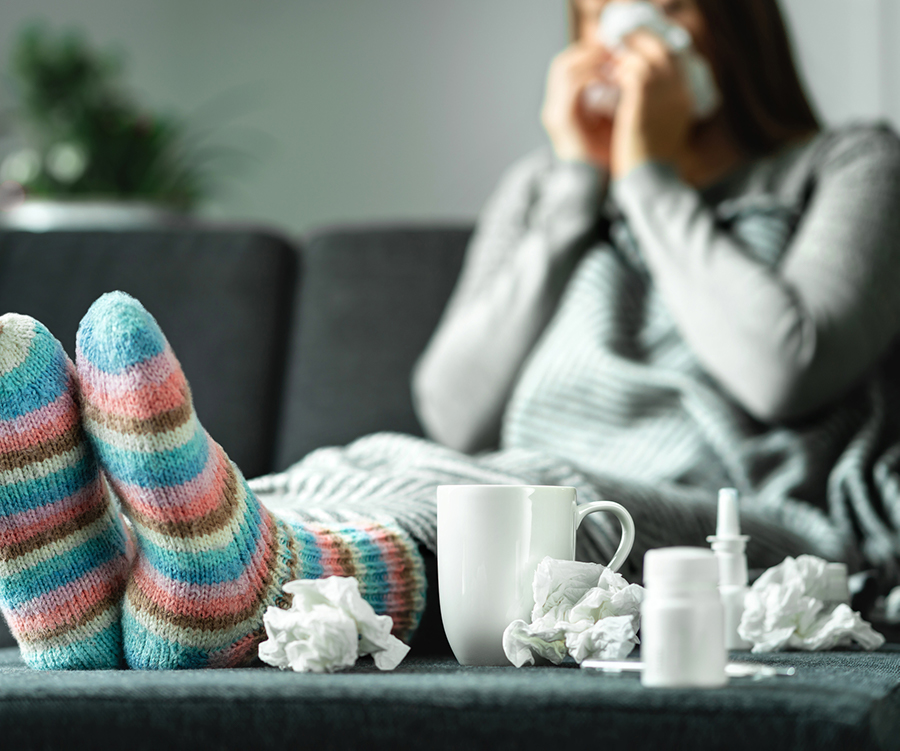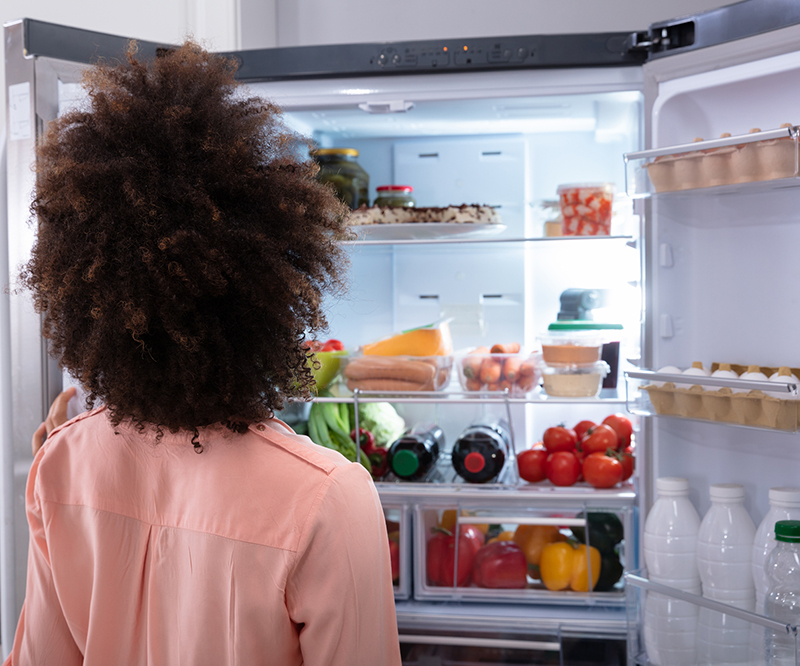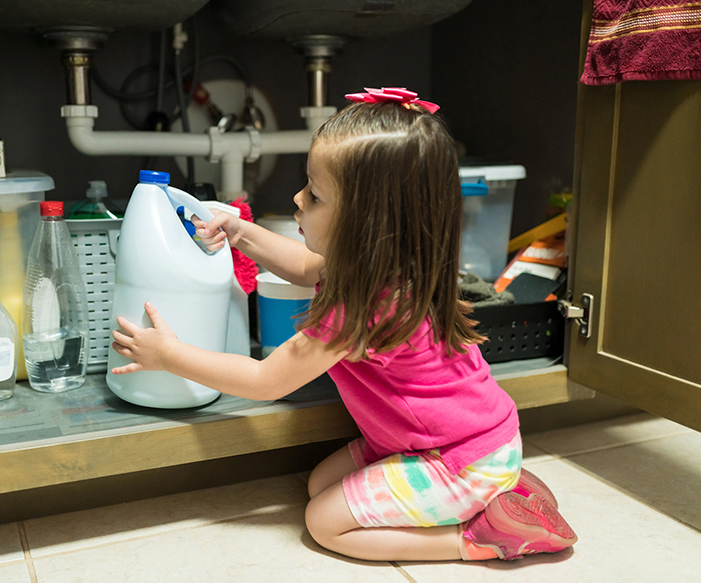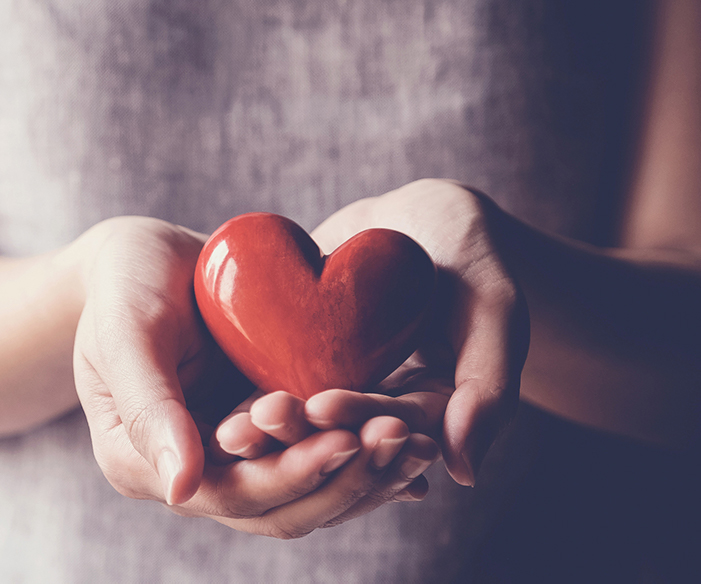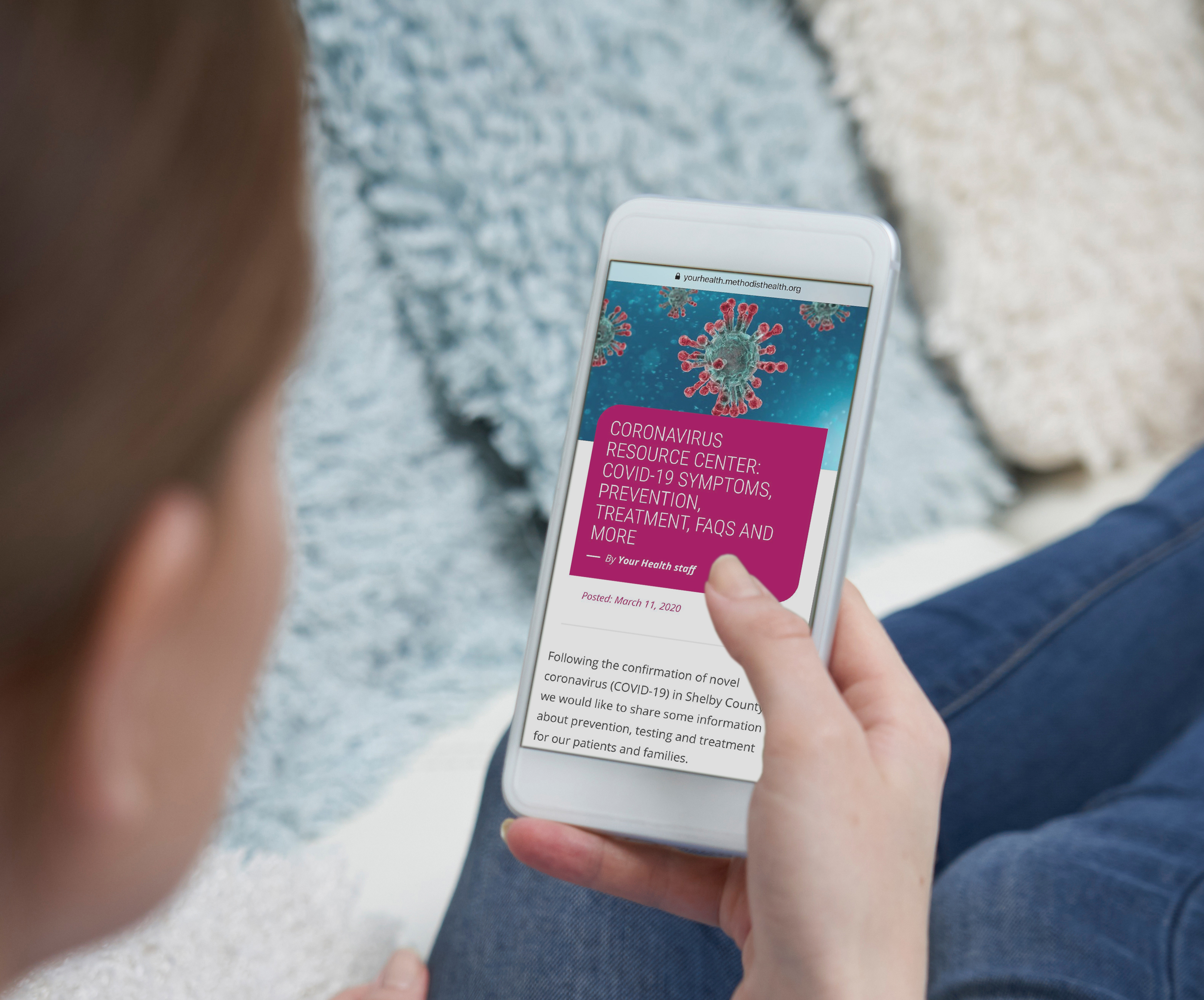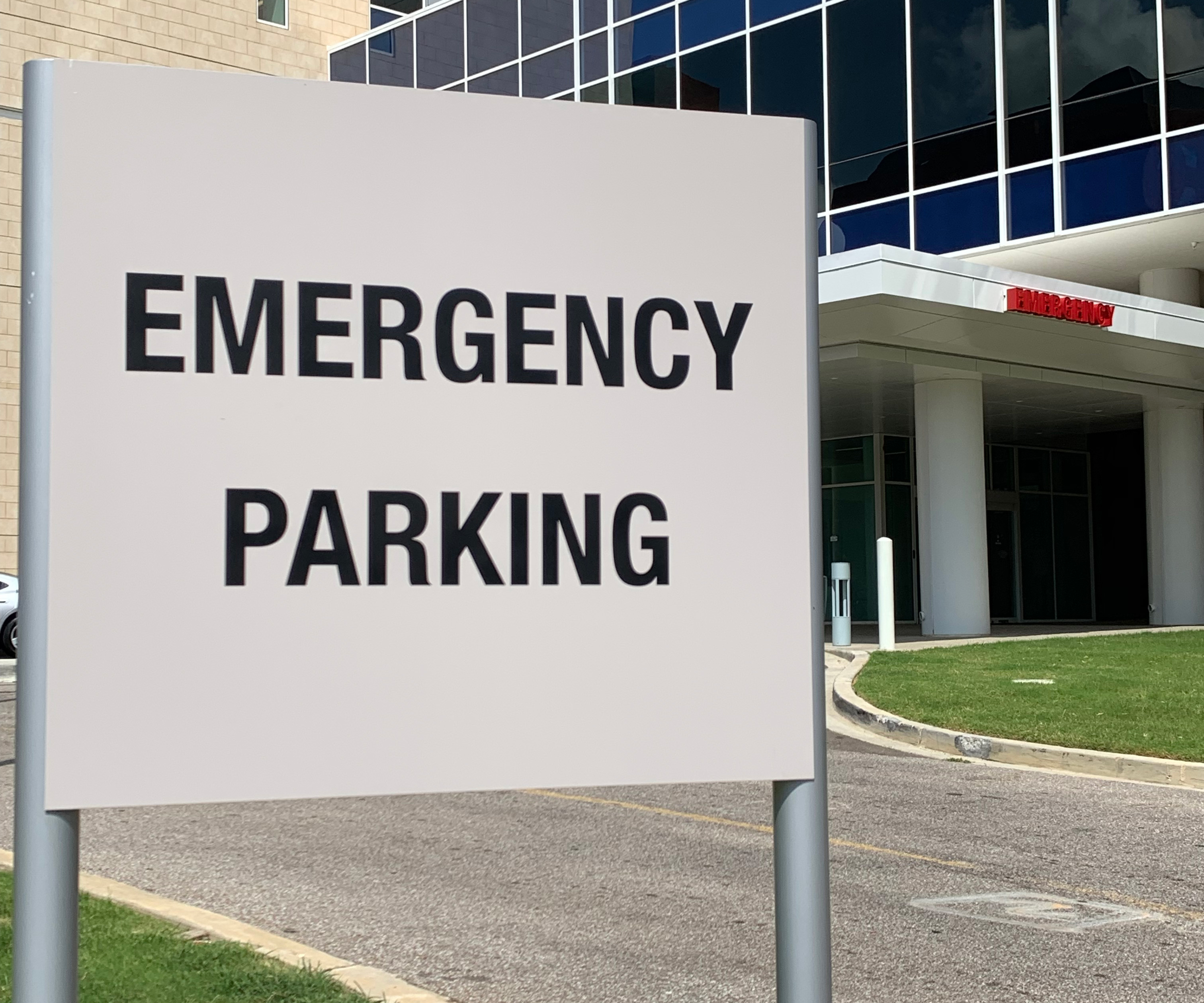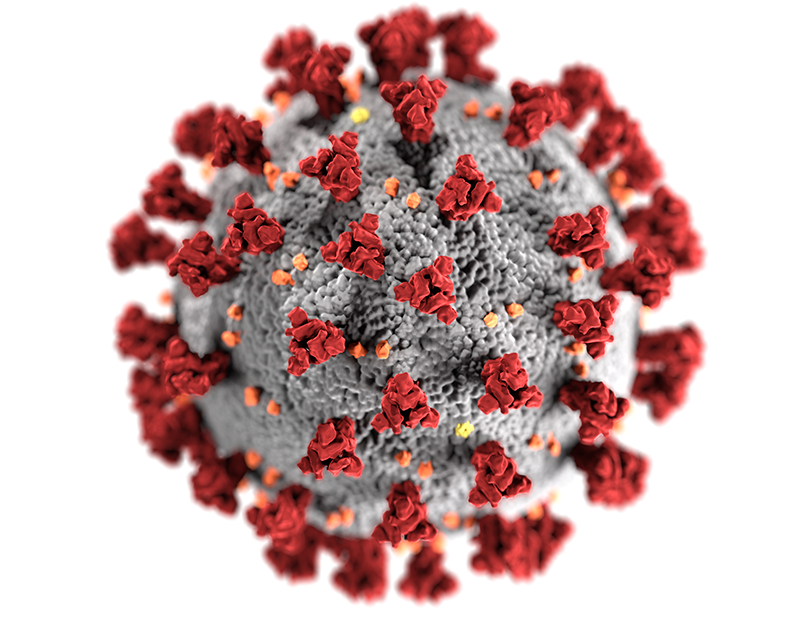
Coronavirus Resource Center: COVID-19 symptoms, prevention, treatment, FAQs and more
The novel coronavirus (COVID-19) outbreak was declared a global pandemic by the World Health Organization. The virus is primarily spread from person to person — mainly through respiratory droplets when an infected person coughs or sneezes — and is affecting many countries worldwide.
We are feeling the direct impact in our community.
This resource center aims to share information about the coronavirus in an effort to keep you informed and educated. Click on the tabs above to explore the different sections.
Ongoing Updates from Methodist Le Bonheur Healthcare
At Methodist Le Bonheur Healthcare, we have a team of experts carefully monitoring the COVID-19 outbreak. Out of an abundance of caution for our patients, families and staff, we have implemented new screening and visiting policies. These policies will ensure the safety for all those who enter a Methodist Le Bonheur Healthcare facility.
The new adult hospital measures — along with other changes or updates at our MLH facilities — are outlined below.
Resuming services at MLH facilities
After careful consideration for the safety of patients, Associates and providers at Methodist Le Bonheur Healthcare, MLH resumed some elective procedures on May 4. MLH consulted with its physician leaders and nursing staff to develop a safe plan to gradually resume elective procedures across the health system.
Methodist’s top priority is providing the best healthcare for patients in the safest environment for employees, providers, patients and the community.
In addition to some elective procedures resuming, MLH will also accept well-patient visits in its hospitals, physician practices, minor medical centers and diagnostic centers. This phased-in approach ensures MLH facilities have sufficient supplies, staffing and other critical resources. MLH is continuing to embrace new ways to serve its patients that minimize physical contact and protect their wellbeing.
Safety protocols include:
- Health screening upon entrance to any MLH facilities for all visitors and staff
- Limiting visitors (more information below)
- Testing MLH providers and staff who have direct contact with COVID-19 patients
- Providing masks to every patient and visitor
- Providing hand sanitizer in all public areas so that it is easily accessible to patients
- Adding further cleaning and disinfecting practices in addition to our comprehensive cleaning and sanitizing processes already in place
- Virtual and in-person COVID clinic to provide safe monitoring and specialized care for patients diagnosed with COVID-19; including patients discharged from the hospital
- Conducting virtual appointments and post-operative home monitoring via telehealth
MLH providers will continue to wear appropriate personal protective equipment (PPE) to protect patients and themselves while providing the best possible care.
Click here for additional information about what we're doing to keep patients safe while resuming services.
Visitor policy — Visiting is suspended
To protect our patients, staff, visitors and community, all visiting is being suspended until the transmission of COVID-19 is no longer a threat.
No visitors will be allowed in rooms of patients with pending or positive COVID-19 tests.
We recognize there are times when having a visitor or family member present is crucial. In these cases, visitors will be allowed based on the situations listed below.
Please note these exceptions only apply if a visitor screens negative based on travel, contact with known or suspected COVID-19 patients or symptoms of respiratory infection (fever, runny nose, cough, shortness of breath).
Situations include:
- One parent or legal guardian of the patient who is a minor.
- Obstetric patients may have one support person to accompany them.
- Neonatal Intensive Care Unit (NICU) patients may have two parents who must remain in the room the duration of the visit.
- Patients at end-of-life may have a very limited number of visitors who must remain in the room for the duration of the visit.
- Patients where the family member provides safety (e.g., altered mental or physical status or developmental delay) or is key to patient care (e.g., disruptive behavior) may have one visitor who must stay in the room for the duration of the visit.
- Patients requiring a home caregiver to be trained must stay in the room for the duration of the visit.
- Patients undergoing surgery or procedures may have one visitor before and immediately after the procedure/surgery.
- Patients undergoing outpatient surgery or procedures may have one visitor before and immediately after the surgery/procedure.
Our patient care philosophy depends greatly on engaging families to be part of the healing process. The decision to restrict visitors was difficult and made only after careful consideration with our medical staff.
Screening Patients, Visitors, Associates and Physicians at hospital entry points.
We implemented employee and physician screening on March 19 with all six MLH hospitals. That was expanded to all other MLH facilities on March 23.
Screenings questions include the CDC's current recommended testing criteria, which will cover symptoms, exposure and travel history, as well as a temperature check.
Primary Care and Elective Procedures
If a patient had a visit or procedure postponed due to COVID-19, the patient’s provider will contact them to reschedule.
MLH physicians are prioritizing procedures and working to reopen all elective services and routine care in the safest possible manner. Patients should contact their provider if they have any questions or concerns.
Patients should call their provider’s office if they are ill or have other health care needs. The patient’s provider will work with them to determine whether an in-person or telehealth visit is best for their individual situation. If a patient is scheduled for an in-person visit or procedure in the office or hospital, they will be screened upon entrance to the facility.
If you need a primary care physician, visit https://www.methodisthealth.org/primarycare
We continue to schedule office appointments for patients with non-respiratory and non-flu ACUTE problems (ex: injury or abdominal pain), so please contact the practice as you normally would if you have other health concerns.
We also ask that those of you with upper respiratory or flu-like symptoms call your primary care provider’s office right away, and alert the staff of your symptoms. Someone will follow up with you by telephone as soon as possible and advise you to do one of the following:
Confirm that you should come to the physician’s office
Refer you to a COVID-19 testing facility
Refer you to the Emergency Department, IF YOUR SYMPTOMS WARRANT. If you are referred to an Emergency Department, we will ask you to call in advance of your arrival so proper precautions can be taken
Counsel you on quarantine and self-care at home, if appropriate
Schedule a telehealth visit (more information below)
Schedule a follow-up phone call to check on your status
In the interest of everyone’s health and safety, we will not be able to accommodate walk-in appointments until further notice.
More from Your Health: I’m sick and worried about the coronavirus: Do I stay at home, call my physician or do I need to visit the ER?
Minor Meds
Our Minor Medical Centers are open typically open 7 days a week with no appointment necessary. However, due to the ongoing COVID-19 pandemic, all locations will be closed on Sundays in May. This policy will continue to be reevaluated.
If you would like to set up a telehealth appointment, call ahead to the location you would typically visit.
Antibody Testing
Methodist Minor Medical Centers will now be offering COVID-19 antibody testing.
This test is intended for use as an aid in identifying individuals that had an illness that may have been COVID-19 and have since developed an immunity to the disease. At this time, it is not known how long antibodies persist following infection or whether the presence of antibodies means you have protective immunity from COVID-19.
Negative results do not rule out COVID-19 infection, particularly in those who have been in recent contact with the virus.
For more information on antibody testing, please call your local Minor Medical Center location.
Teleheath
Telehealth is a way to provide patients access to high quality care while limiting contact exposure for patients and caregivers alike and conserving PPE supplies. With telehealth, patient “visits” with providers are performed remotely with the help of telephone and video.
MLH offers telehealth at our Methodist Medical Group primary care practices, as well as in specialty practices in the areas of cardiology, ENT, gastroenterology, allergy, endocrinology, sickle cell and many more.
Certain types of patient visits lend themselves more to telehealth, such as lower respiratory symptoms that might be flu, allergy symptoms or COVID-19, and follow up visits for chronic conditions. Ask your provider if a telehealth visit is right for you.
Learn more about our telehealth services
Classes at MLH Facilities
Due to the presence of COVID-19 in our community, classes are subject to cancelation or rescheduling.
Classes for May and June at Germantown may not show in the listing below, but there are some courses available. Please reach out via the numbers listed on our Class Finder if you have any questions.
Plasma Donation and Treatment
Methodist Le Bonheur Healthcare is participating in Mayo Clinic’s Expanded Access Protocol for Convalescent Plasma Program for treatment of patients with COVID-19.
Researchers believe receiving convalescent plasma may help current COVID-19 patients with advanced illness.
Learn more about the program and how you can help by clicking on the tab at the top of this page.
MLH Spiritual Care Helpline
In this unique time, we have launched a 24/7 Spiritual Care Helpline for adult and pediatric spiritual care. Any patient, family member, Associate or physician who desires to connect with a MLH chaplain can do so by calling the adult or pediatric spiritual care phone number.
Patients who cannot receive visitors are highly encouraged to use the helpline.
One-on-one spiritual care support is available 24 hours a day, 7 days a week.
Adult Spiritual Care: (901) 516-7877
Pediatric Spiritual Care: (901) 297-2388
Virtual Support Group for Community Mental Health Providers
As the impact of COVID-19 extends into our community, the mental health burden is continuing to grow. As ethical practitioners, we acknowledge that we need to be mentally well in order to continue in our important work of serving others.
This group is meant to be a place of non-judgmental support for Mid-South mental health professionals as they cope with their own emotions related to COVID-19 — so that they can best continue to meet the mental health needs of the community during this challenging time.
When: 12 p.m. to 1 p.m. every Wednesday via Zoom meeting
Register in advance: ZOOM MEETING REGISTRATION
After registering, you will receive a confirmation email containing information about joining the meeting.
Please call your primary care physician if you have been exposed to the new coronavirus, believe you may have been exposed or travelled internationally and have symptoms such as fever, chills or cough. Your physician will help guide you to the appropriate resources for testing and/or treatment.COVID-19 FAQs
Click here view more Frequently Asked Questions and the corresponding answers from the CDC
What is a coronavirus?
Coronaviruses are actually a large family of illnesses. Some cause illnesses — generally along the lines of a common cold — in humans, while others affect only animals, according to the CDC.
However, there are cases where an animal coronavirus mutates into a form that can infect and spread among humans, and the CDC believes that is what happened with the virus now known as COVID-19.
MERS (Middle East Respiratory Syndrome) and SARS (Severe Acute Respiratory Syndrome) are examples of coronaviruses that originated in animals and later spread to people.
How does COVID-19 spread?
The virus mainly spreads through close contact from person-to-person.
The CDC says this likely happens between people who are within close contact (about six-feet) of one another or through ‘respiratory droplets’ produced when an infected person coughs, sneezes or talks. The droplets can land in the mouth or nose of people who are nearby — or they can be inhaled into the lungs.
It's important to remember that COVID-19 can be spread by people who are not showing symptoms.
The CDC previously stated COVID-19 could be spread if someone touches a surface or object — a countertop or doorknob for example — that has the virus on it and then touches their mouth, nose or eyes. That is still true, but it IS NOT thought to be one of the main ways the virus spreads.
Here's an excerpt from the CDC's website:
From touching surfaces or objects. It may be possible that a person can get COVID-19 by touching a surface or object that has the virus on it and then touching their own mouth, nose, or possibly their eyes. This is not thought to be the main way the virus spreads, but we are still learning more about this virus.
The CDC also addressed spread from animals to humans and from humans to animals. These were labeled under methods that are "not thought to be the main ways the virus spreads." You can read more here.
Some have asked if COVID-19 can be spread through food. The CDC says there is no evidence to suggest it does, but it is important to wash your hands thoroughly with soap and water before preparing or eating food.
What are the symptoms?
The symptoms originally listed by the CDC included fever, cough and shortness of breath — but that list has been expanded. Symptoms of COVID-19 include:
Fever
Cough
Shortness of breath or difficulty breathing
Chills
Repeated shaking with chills
Muscle pain
Headache
Sore throat
Loss of taste or smell
The symptoms can show any time between two and 14 days after exposure to the virus. Reported illnesses have ranged from mild symptoms to severe illness and death for confirmed coronavirus disease, according to the CDC.
Visit the CDC's COVID-19 website for more information about symptoms.
Am I at a higher risk?
Certain people are at a higher risk for severe illness if they are diagnosed with COVID-19. According to the CDC, that includes:
People 65 and older
People living in nursing homes or long-term care facilities
People of all ages with underlying medical conditions, especially those that are not well controlled
Those conditions and risk factors include asthma, chronic lung disease, diabetes, serious heart conditions, chronic kidney disease, severe obesity, liver disease, HIV and those who are immunocompromised. Read more about the implications for each condition on the CDC's website.
Read what our medical experts had to say about 'Managing diabetes during the COVID-19 pandemic' and 'Your heart health and the devastating impact of COVID-19.'
What do I do if I'm sick?
The CDC has a very specific set of steps they recommend if you’re sick with COVID-19 or suspect you’re infected with the virus. They are outlined below — but for further information click on the CDC Situation Summary at the bottom of this page.
If you think you have been exposed to COVID-19 and develop a fever and symptoms, such as cough or difficulty breathing, call your healthcare provider for medical advice.
Stay at home, except to get medical care, until you no longer pose a risk at infecting other — The time an infected person is considered contagious can vary.
Stay away from other people in your home — This includes pets, if you have any.
Call ahead before you go to the doctor — This will allow a provider, like MLH, to prepare ahead of time and help keep others from getting infected or exposed to the virus.
Cover your coughs and sneezes
Clean your hands often
Try not to share personal household items
Clean frequently-touched surfaces on a daily basis
Monitor your symptoms — Seek medical attention immediately if your illness is getting worse.
Related content: I'm sick and worried about the coronavirus — Do I stay home, call my physician or do I need to visit the ER?
If you have any of the following emergency warning signs of COVID-19, you should seek medical attention immediately:
Trouble breathing
Persistent pain or pressure in the chest
New confusion or inability to arouse
Bluish lips or face
It's important to know this list IS NOT all inclusive. If you have questions or about any other symptoms that are severe or concerning to you, call you healthcare provider.
How do I avoid the coronavirus?
The simplest answer is to avoid being exposed to the virus, but you don’t have a way of knowing whether or not someone you are around is infected.
The CDC recommends avoiding people who are sick, avoid touching your eyes, nose and mouth, stay at home if you’re sick, cover your cough or sneeze into a tissue — then throw it in the trash right away, clean and disinfect frequently-touched objects and surfaces, wash your hands with soap and water for at least 20 seconds.
If you are going out in public, the CDC advises you to wear a cloth face mask that covers both your nose and mouth. You should also abide by the CDC's social distancing guidelines.
For tips to stay safe while running errands during the pandemic, click here.
If you're an essential worker who cannot stay home during the pandemic, we've put together a list of tips to help keep you safe.
How many cases are there in the United States?
The CDC is tracking all confirmed and ‘presumptive positive’ cases with the United States. You can see their latest information on this website.
Community Resources
There are several community resources available for families who need assistance during this uncertain time.
Please call before going to any of the places listed. We are doing our best to keep them update, but these resources are subject to change.
Online General Resource Guides for Families
One Health Connect — Search by zip code to find free or reduced cost services in the greater Memphis area
Tennessee 211 — Listing of state and local health and human services programs
Shelby County Division of Community Services — COVID-19 resource guide
Other Community Resources
Food Resources
Financial and Employment Resources
Health and Education Resources
Transportation and Housing Resources
How You Can Help
Your support of the Methodist Healthcare Foundation's COVID-19 Support Fund will help Methodist Healthcare and our hospitals and facilities respond to the current needs of our caregivers, patients, families, and community. This will include enabling MLH to purchase needed supplies, medical equipment, food, and other resources so that our caregivers can provide safe and compassionate care to those most in need.
Click here if you're interested in donating to the COVID-19 Support Fund.
If you have physical supplies such as N95 masks or surgical masks that you would like to donate, please click here for more information about supplies needed by Methodist Le Bonheur Healthcare.
Click here for instructions on how to make your own face masks and send them to Methodist Le Bonheur Healthcare.
If you are a fully recovered COVID-19 patient who is interested in learning more about donating convalescent plasma to help others fight the virus, click here or click the Plasma Donation & Treatment tab at the top of this page.
Convalescent Plasma Donation and Treatment
Methodist Le Bonheur Healthcare is participating in Mayo Clinic’s Expanded Access Protocol for Convalescent Plasma Program for treatment of patients with COVID-19.
Convalescent plasma is the liquid part of the blood that is collected from people who have recovered from COVID-19.
Researchers believe receiving that plasma may help current COVID-19 patients with advanced illness. The antibodies in the plasma may have the ability to help patients fight the virus and recover more quickly.
Learn more about the program, our first convalescent plasma donor, how you can help and more by clicking here.
Your Health Blog Posts
SUBSCRIBE TO OUR BLOG
and you'll receive more health & wellness tips right in your inbox.
SUBSCRIBE NOWRelated Articles



